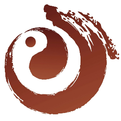
Introduction
1. Characteristics of Qi Deficiency Constitution
2. Classification of Qi Deficiency Constitution
3. Dietary Regulation for Qi Deficiency Constitution
4. Daily Activities and Work for Qi Deficiency Constitution
5. Health Preservation Adjustments for Qi Deficiency Constitution
1
Characteristics of Qi Deficiency Constitution
Qi deficiency constitution refers to a state of low body and organ function due to insufficient vital energy (yuan qi), which may arise from congenital weakness, lack of nourishment after illness (prolonged illness, excessive fatigue, etc.), or aging and decline of qi.
Overall, it is characterized by insufficient vital energy, manifesting as low voice, shortness of breath, reluctance to speak, easy fatigue, lack of spirit, and susceptibility to colds. Individuals with this constitution tend to be introverted and avoid risks.
2
Classification of Qi Deficiency Constitution
Qi deficiency constitution is similar to Yang deficiency constitution, yet each has its own characteristics. Yang deficiency primarily presents with cold extremities and aversion to cold, while Qi deficiency, although it may have a Yang deficiency tendency, mainly manifests as relatively weak lung and spleen functions. The saying goes, “Life depends on qi, which originates from the kidney’s yuan qi and is continuously supplemented by the refined essence of food transformed by the spleen and stomach, and the clear qi inhaled by the lungs,” thus emphasizing that “the spleen is the source of vital energy, and the lungs are the hub of qi.” A relative deficiency in both spleen and lung easily leads to Qi deficiency.
Lung Qi Deficiency. The lungs govern qi and the skin, and individuals with lung qi deficiency have poor adaptability to environmental changes, making them susceptible to the cold in winter and heat in summer.
Spleen Qi Deficiency. This is mainly characterized by poor appetite, small food intake, and easy abdominal bloating; or a strong stomach but weak spleen: good appetite but fast eating (strong stomach can eat), leading to post-meal bloating and fatigue (spleen deficiency hinders transformation).
3
Dietary Regulation for Qi Deficiency Constitution
Dietary Principles
Avoid cold and suppress heat, and consume more foods that tonify qi and strengthen the spleen, which are easy to digest.
However, it is important to
gradually supplement food, distinguishing between cold and heat,
and avoid excessive or chaotic supplementation.
Suitable Foods
Individuals with Qi deficiency constitution should consume foods that are neutral to slightly warm and have tonifying effects. Eating congee is a good way to tonify qi, as it is easy to absorb and cook.
① Meat: chicken, pig stomach, beef, lamb, quail; freshwater fish, loach, yellow eel, etc.
② Vegetables: white lentils, sweet potatoes, lotus seeds, water chestnuts, pumpkin, cabbage, carrots, shiitake mushrooms, potatoes, yam, soybeans, etc.
③ Fruits: jujubes, grapes, apples, oranges, longan flesh, etc.
④ Grains: millet, japonica rice, glutinous rice, oat wheat, soybean products, etc.
⑤ Condiments: maltose, honey, etc.
Foods to Avoid
Avoid excessively cold or hot foods; excessively cold foods include crabs, watermelon, mung beans, sashimi, cold drinks, etc., including chilled foods and fruits, and cold dishes; excessively hot foods include chili, dog meat, and other spicy and warming items. Limit consumption of areca nut, raw radish, and other qi-depleting foods, and avoid overly rich and hard-to-digest foods.
4
Daily Activities and Work for Qi Deficiency Constitution
Exercise for Health. It is advisable to choose moderate-intensity, gentle exercises such as brisk walking, swimming, Tai Chi, and Ba Duan Jin, and to maintain consistency; avoid heavy-load exercises and excessive sweating. When exercising outdoors, be cautious of wind, cold, and dew, and ensure good air circulation and appropriate temperature during indoor exercises.
Daily Activities and Work. “Prolonged lying harms qi,” and “labor depletes qi,” thus individuals with Qi deficiency should avoid prolonged lying down and overexertion. It is encouraged to balance work and rest, avoiding excessive labor to prevent damaging the righteous qi; avoid sweating and exposure to wind.
5
Health Preservation Adjustments for Qi Deficiency Constitution
Mental Regulation: The seven emotions (joy, anger, worry, thought, sadness, fear, and shock) as normal mental states generally do not cause disease, but if they exceed a certain limit, they can lead to illness (emotion-induced symptoms). Therefore, it is said, “Anger raises qi, joy relaxes qi, sadness depletes qi, fear lowers qi, shock disrupts qi, and thought binds qi.” It is advisable to maintain a stable and optimistic mindset, avoiding excessive worry.
Acupoint Regulation: Acupoints such as Zhongwan, Shenque, Qihai, Baihui, Dazhui, Feishu, Ge Shu, Pishu, Tianshu, and Zusanli are beneficial for tonifying qi, strengthening the spleen, and enhancing physical health. For daily health care, select 2-7 acupoints each time, and methods such as pressing, rubbing, or moxibustion can be used.
Source: Yunyi Xingyuan


